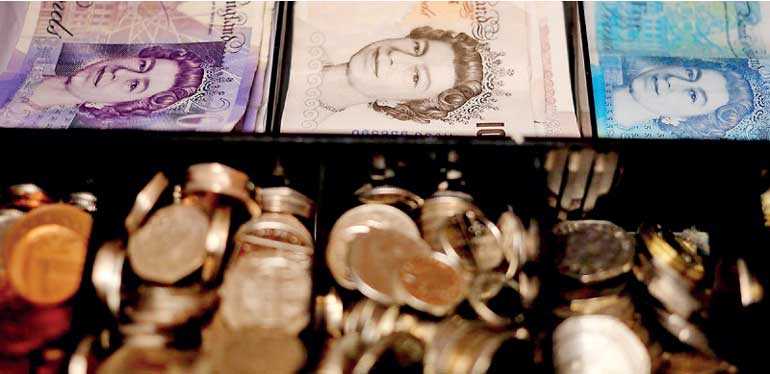Saturday Feb 21, 2026
Saturday Feb 21, 2026
Saturday, 22 August 2020 00:00 - - {{hitsCtrl.values.hits}}

Pound notes and coins are seen inside a cash register in a bar - Reuters
LONDON (Reuters): Britain’s public debt has surpassed 2 trillion pounds ($ 2.65 trillion) for the first time, underscoring the challenge for Finance Minister Rishi Sunak, who is under pressure to give even more emergency support for the pandemic-hit economy.
Net debt in July, excluding public banks, rose to 2.004 trillion pounds. That’s equivalent to 100.5% of Britain’s economic output, the highest since 1961 when the country was still struggling with the costs of fighting World War Two.
The debt surge reflects a huge increase in Government spending, ranging from its massive coronavirus job subsidy scheme and tax cuts to discounts for restaurant diners, as well the hit to tax revenues from a nationwide lockdown.
Debt has leapt by about 200 billion pounds since the coronavirus crisis engulfed Britain.
Sunak said the crisis had put the public finances under significant strain, but without the Government’s huge spending spree things would have been far worse.
“Today’s figures are a stark reminder that we must return our public finances to a sustainable footing over time, which will require taking difficult decisions,” he said.
“It is also why we are taking action now to support the growth and jobs which pay for our public services.”
Britain’s budget forecasters warned last month that debt would pass the 2 trillion-pound mark this year before continuing its sharp rise to 2.5 trillion pounds in the 2022/23 financial year and to 2.6 trillion pounds by the mid-2020s.
Sunak is due to announce his latest plans for the economy in an annual budget speech in the autumn when unemployment is expected to be rising sharply.
His job protection scheme, which has so far cost 35 billion pounds, is due to expire at the end of October and he is facing calls from unions, the opposition Labour Party and many business leaders to come up with alternative forms of support.